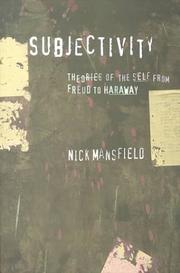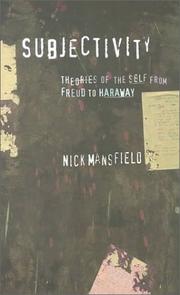| Listing 1 - 10 of 21 | << page >> |
Sort by
|
Book
ISBN: 9780230537323 0230537324 Year: 2008 Publisher: Basingstoke Palgrave Macmillan
Abstract | Keywords | Export | Availability | Bookmark
 Loading...
Loading...Choose an application
- Reference Manager
- EndNote
- RefWorks (Direct export to RefWorks)
Political philosophy. Social philosophy --- Polemology --- War (Philosophy) --- 811.1 Rechtvaardige oorlog --- War --- Philosophy
Book
ISBN: 1781383960 1781383847 1781382786 9781781383841 9781781383964 9781781382783 Year: 2016 Publisher: Liverpool
Abstract | Keywords | Export | Availability | Bookmark
 Loading...
Loading...Choose an application
- Reference Manager
- EndNote
- RefWorks (Direct export to RefWorks)
The book outlines how class is single most important factor in understanding the British army in the period of industrialisation. It challenges the 'ruffians officered by gentlemen' theory of most military histories and demonstrates how service in the ranks was not confined to 'the scum of the earth' but included a cross section of 'respectable' working class men.
Common soldiers represent a huge unstudied occupational group. They worked as artisans, servants and dealers, displaying pre-enlistment working class attitudes and evidencing low level class conflict in numerous ways. Soldiers continued as members of the working class after discharge, with military service forming one phase of their careers and overall life experience.
After training, most common soldiers had time on their hands and were allowed to work at a wide variety of jobs, analysed here for the first time. Many serving soldiers continued to work as regimental tradesmen, or skilled artificers. Others worked as officers' servants or were allowed to run small businesses, providing goods and services to their comrades. Some, especially the Non Commissioned Officers who actually ran the army, forged extraordinary careers which surpassed any opportunities in civilian life.
All the soldiers studied retained much of their working class way of life. This was evidenced in a contract culture similar to that of the civilian trade unions. Within disciplined boundaries, army life resulted in all sorts of low level class conflict. The book explores these by covering drinking, desertion, feigned illness, self harm, strikes and go-slows. It further describes mutinies, back chat, looting, fraternisation, foreign service, suicide and even the shooting of unpopular officers.
Soldiers --- Working class --- Armed Forces personnel --- Members of the Armed Forces --- Military personnel --- Military service members --- Service members --- Servicemen, Military --- Armed Forces --- Great Britain. --- Angliǐskai︠a︡ Armii︠a︡ --- Tsava ha-Briṭi --- British Army --- בריטניה. --- צבא הבריטי --- England and Wales. --- Labor --- History --- Labor and laboring classes --- Manpower --- Work --- 1800-1899 --- Grossbritannien. --- Vereinigtes Königreich von Großbritannien und Nordirland --- Großbritannien und Nordirland --- England --- UK --- Angleterre --- Brīṭāniyā al-ʿUẓmā --- Brīṭāniya 'l-ʿUẓmā --- Vereinigtes Königreich Großbritannien und Nordirland --- United Kingdom --- United Kingdom of Great Britain and Northern Ireland --- Great Britain --- Grande Bretagne --- British Isles --- United Kingdom of Great Britain and Ireland --- Royaume-Uni --- Gran Bretagna --- U.K. --- GB --- Grande-Bretagne --- Grossbritannien --- British Empire --- Britisches Reich --- Briten --- Schottland --- Commonwealth --- 1707 --- -Anglia --- Angliyah --- Briṭanyah --- England and Wales --- Förenade kungariket --- Grã-Bretanha --- Igirisu --- Iso-Britannia --- Marea Britanie --- Nagy-Britannia --- Prydain Fawr --- Saharātchaʻānāčhak --- Storbritannien --- Velikobritanii͡ --- Wielka Brytania --- Yhdistynyt kuningaskunta --- Northern Ireland --- Scotland --- Wales --- Anglia
Book
ISBN: 1789623774 1789624932 1789620864 9781789624939 9781789620863 Year: 2019 Publisher: Liverpool
Abstract | Keywords | Export | Availability | Bookmark
 Loading...
Loading...Choose an application
- Reference Manager
- EndNote
- RefWorks (Direct export to RefWorks)
Rank and file soldiers were not 'the scum of the earth' but included a cross section of working-class men, who retained their former civilian culture. While they often exhibited pride in regiment and nation, soldiers could also demonstrate a growing class consciousness and support for political radicalism. The book will challenge assumptions that the British army was politically neutral, if privately conservative, by uncovering a rich vein of liberal and radical political thinking among some soldiers, officers and political commentators. This ranges from the Whig 'militia' tradition, through radical theories on tactics and army reform, to attempted ultra-radical subversion amongst troops, and the involvement of soldiers in riots and risings. Case studies are given of individual 'military radicals', soldiers or ex-soldiers who were reforming and later socialist activists. Popular anti-French feeling of the Napoleonic Wars is examined, alongside examples of rank and file bravery which fostered widespread loyalty and patriotism. This contributed to soldiers being used successfully in strike breaking, and deployed against rioters or Chartist revolts. By the late Victorian period, popular imperialism was an important part of working-class support for Conservatism. The book explores what impact this had on rank and file soldiers, whilst outlining minority support for socialism.
Soldiers --- Sociology, Military --- Military sociology --- Armed Forces --- Armies --- Peace --- War --- War and society --- Armed Forces personnel --- Members of the Armed Forces --- Military personnel --- Military service members --- Service members --- Servicemen, Military --- Political activity --- History --- Great Britain. --- Angliǐskai︠a︡ Armii︠a︡ --- Tsava ha-Briṭi --- British Army --- בריטניה. --- צבא הבריטי --- England and Wales. --- 1800-1899 --- Anglia --- Angliyah --- Briṭanyah --- England and Wales --- Förenade kungariket --- Grã-Bretanha --- Grande-Bretagne --- Grossbritannien --- Igirisu --- Iso-Britannia --- Marea Britanie --- Nagy-Britannia --- Prydain Fawr --- Royaume-Uni --- Saharātchaʻānāčhak --- Storbritannien --- United Kingdom --- United Kingdom of Great Britain and Ireland --- United Kingdom of Great Britain and Northern Ireland --- Velikobritanii͡ --- Wielka Brytania --- Yhdistynyt kuningaskunta --- Northern Ireland --- Scotland --- Wales --- Loyalty --- Socialism --- citizen --- soldier --- labour --- Military --- Radicalism --- Working-class

ISBN: 0814756514 Year: 2000 Publisher: New York (N.Y.) : New York university press,
Abstract | Keywords | Export | Availability | Bookmark
 Loading...
Loading...Choose an application
- Reference Manager
- EndNote
- RefWorks (Direct export to RefWorks)
Self (Philosophy). --- Self. --- Subjectivity.
Book
ISBN: 9781438481654 9781438481661 1438481659 Year: 2021 Publisher: Albany (N.Y.): State university of New York press,
Abstract | Keywords | Export | Availability | Bookmark
 Loading...
Loading...Choose an application
- Reference Manager
- EndNote
- RefWorks (Direct export to RefWorks)
"A critical analysis of the philosophy of sovereignty from Hobbes through Derrida, arguing that we need to re-invent sovereignty as a motive for democratic political action while remaining alert to its dangers, specifically its relationship to violence"--
Political philosophy. Social philosophy --- Sovereignty --- Democracy --- Political violence --- Philosophy, French --- Derrida, Jacques

ISBN: 0814756506 Year: 2000 Publisher: New York New York University Press
Abstract | Keywords | Export | Availability | Bookmark
 Loading...
Loading...Choose an application
- Reference Manager
- EndNote
- RefWorks (Direct export to RefWorks)
Book
ISBN: 1438481667 9781438481661 Year: 2021 Publisher: ALBANY STATE UNIV OF NEW YORK PR
Abstract | Keywords | Export | Availability | Bookmark
 Loading...
Loading...Choose an application
- Reference Manager
- EndNote
- RefWorks (Direct export to RefWorks)
"A critical analysis of the philosophy of sovereignty from Hobbes through Derrida, arguing that we need to re-invent sovereignty as a motive for democratic political action while remaining alert to its dangers, specifically its relationship to violence"--
Philosophy, French --- Democracy --- Sovereignty. --- Political violence. --- Philosophy. --- Derrida, Jacques.
Book
ISBN: 9780823232420 Year: 2010 Publisher: New York Fordham university press
Abstract | Keywords | Export | Availability | Bookmark
 Loading...
Loading...Choose an application
- Reference Manager
- EndNote
- RefWorks (Direct export to RefWorks)
Legitimacy of governments --- Sovereignty --- Bataille, Georges --- Derrida, Jacques. --- Freud, Sigmund
Book
ISBN: 9781438481647 Year: 2021 Publisher: Albany : State University of New York Press
Abstract | Keywords | Export | Availability | Bookmark
 Loading...
Loading...Choose an application
- Reference Manager
- EndNote
- RefWorks (Direct export to RefWorks)
Book
ISBN: 9780823292974 Year: 2022 Publisher: New York, NY
Abstract | Keywords | Export | Availability | Bookmark
 Loading...
Loading...Choose an application
- Reference Manager
- EndNote
- RefWorks (Direct export to RefWorks)
| Listing 1 - 10 of 21 | << page >> |
Sort by
|

 Search
Search Feedback
Feedback About UniCat
About UniCat  Help
Help News
News